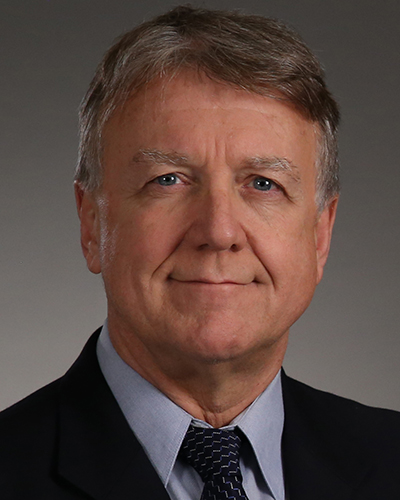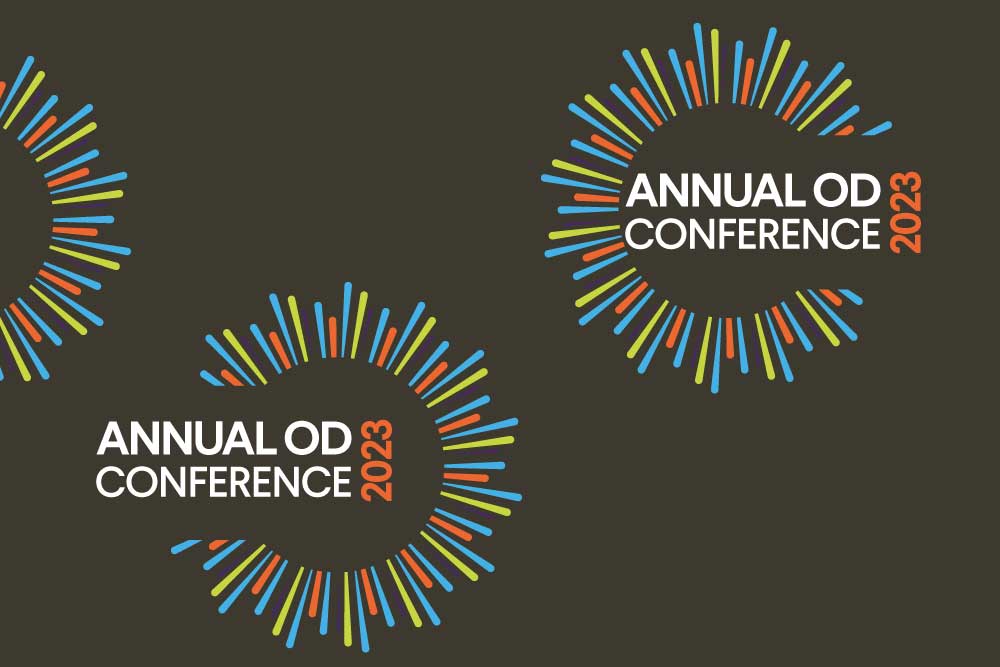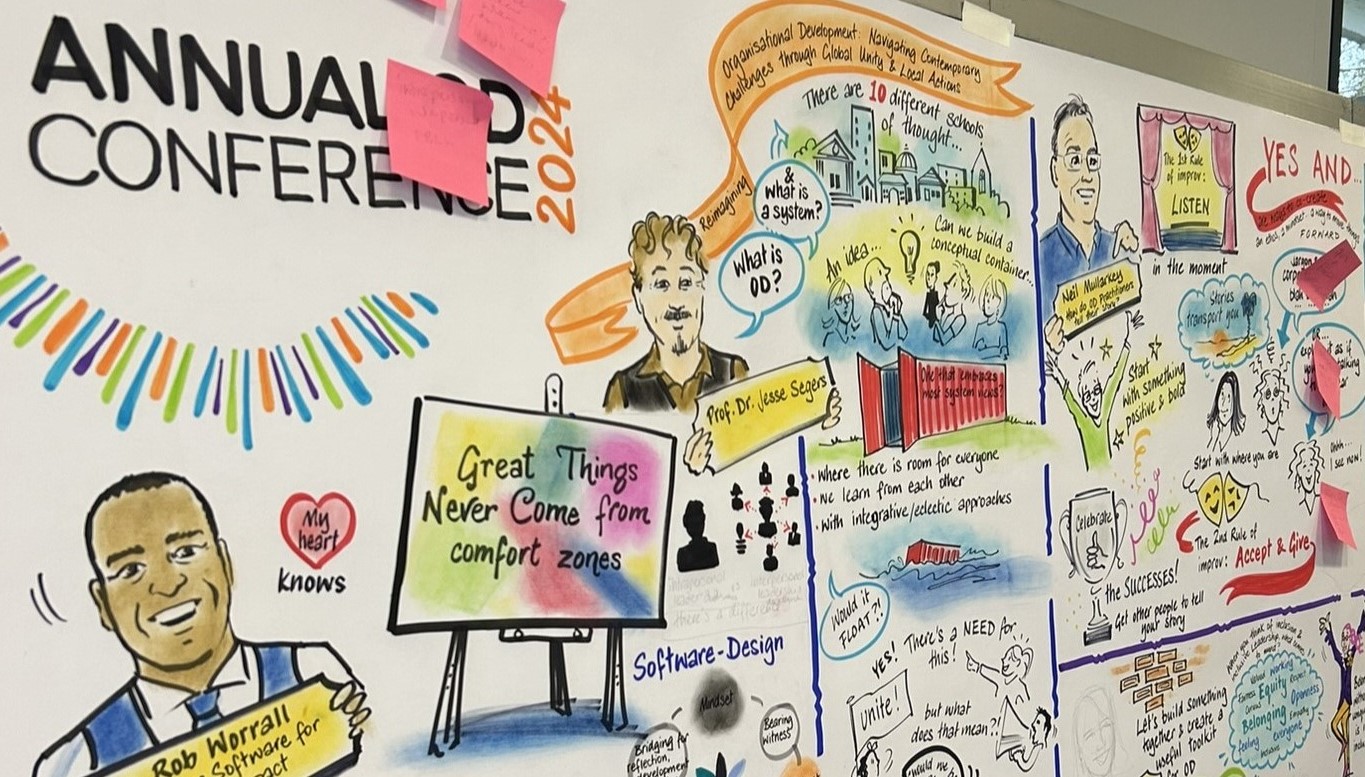Gervase Bushe will be one of the keynote speakers at Roffey Park Institute’s OD Conference on the 26th to 27th of October 2023. This will be Gervase’s first in-person conference in the United Kingdom since Covid and he is excited to draw upon his knowledge to explore topics like self-organising teams, vertical development and the generative change model.
One goal of the OD Conference is to help leaders create sustainable organisations, both for business and the environment. Gervase shares this ideology, believing that OD Consultants should create organisations which are good for people, good for performance and good for the planet. To achieve this, Gervase is eager for attendees to recognise and accept that any OD solution we produce today could in fact become a problem for tomorrow. Therefore, consultants and leaders must learn to embrace the unknown. Rather than trying to plan for the future, Gervase believes that we are “better off focusing on how we create an organisation that’s able to continuously adapt, move and figure out.”

Gervase’s Journey
Gervase told us that he was a “student radical” undergraduate who “wanted to change the world.” Whilst studying philosophy and sociology at Concordia University, he was also involved with an assertive student body and attended a T Group. T Groups, Gervase explained, were a “prototype of encounter groups, or you know, sensitivity training. They were kind of the origin of OD that emerged in the 1950s and 1960s.” By 22, Gervase was helping to co-facilitate these T Group courses, doing action research work, and learning about OD.
In 1976, invited by his then mentor Healey Dimmick, Gervase attended his first ODN Network Conference. This provided him with the opportunity to network with experienced practitioners on the topic of large group change and adult learning group dynamics, which he hoped to do his post-graduate research on. He was frequently recommended Case Western Reserve University. These sparks of interest in Case were further ignited after witnessing a professor present at the Conference.
He began his doctorate at Case at 23 years old, which provided him access to the American corporate elite. In his second year, employed by Dave Cole, he helped design the General Motors Quality Circle Programme which led to him being offered a job in the corporate ID group at General Motors. He spent two and a half years there, where he wrote up his dissertation.
At the time of his graduation, Gervase felt torn between academia and joining a consulting firm. Believing that moving from industry to academia was harder than the reverse, he got his first academic job at Simon Fraser University in Vancouver. Over the years, he traveled down to the States and held several consulting and associate roles whilst simultaneously publishing impactful books like ‘Clear Leadership: Sustaining Real Collaboration and Partnership at Work’.
One accolade included winning the 2017 Roffey Park Institute Research Competition with his paper, ‘Where Organisation Development Thrives’. Roffey Park’s Val Hammond Fund financed this competition and all proceeds from the OD Conference will be reinvested into the trust so that we can continue to fund research and deliver on our charitable objectives.
Gervase and OD
Gervase is one of the leading minds in OD and continues to inspire experts and consultants alike. We are incredibly excited to welcome him once again to Roffey Park, and he shares this sentiment. He told us how he is anticipating the conference to have “a community kind of engagement with deep and rich conversations; stretching interactions which aim to elevate the wisdom of us all.” He echoed that so much of what is great about conferences is about “what happens between the talks,” with the chance to network with brilliant minds.
Gervase will be sparking discussion on the topic of self-managed or self-organised teams. He explained how this has been a continued discussion within OD, “there is a contradiction between how we see leaders. We teach and expect leaders to have a vision, and to know the best direction to go. But on the other hand, we say we want to create agile, more emergent forms of organising where the localised groups will figure out what needs to happen. That puts our leaders in quite a bind.” Gervase plans to ask the question: how do we, as consultants, support leaders in making the shift that they need to make to do the forms of organising that they say they want to do? As we touched upon earlier, a lot of it is about being able to hold the space of not knowing and managing the anxiety that generates.
Gervase is planning to bring the latest of what he is working on to talk about at the conference – the nature of leadership in a generative change process. The generative change model is a concept, based on evidence, that Gervase has created which is based on an emergent bottom-up form of change that is far more transformative and creates far more change far more rapidly.
Gervase explained to us that the model “is still very unusual because it requires a different image of leadership, and it requires a different set of competencies. That is what I was planning to talk about, how do we develop those competencies not only in our leaders but in ourselves and why that is difficult. Some ideas I have now involve what the paths are to developing key competencies in our leaders, and as OD consultants, how do we help them be ready for that?”
Gervase would like to leave you with one question to think about that he will be looking to discuss further at the conference. What are the challenges we face in creating great organisations that are good for people, good for performance, and good for the planet at this time, given the dynamics that are going on around remote working and in the late stages of capitalism? Or if any of this is even possible in the current economic system?





